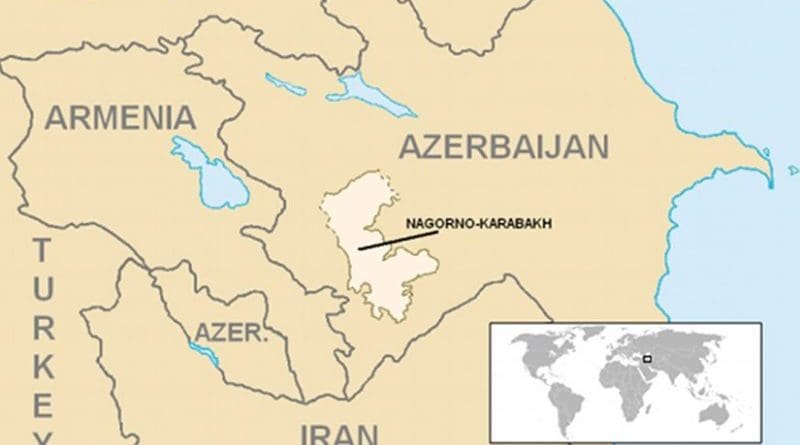Karabakh: Russian Peacekeepers Began Arriving Before Joint Declaration And Deployment Was Approved – OpEd
By Paul Goble
Two details about the insertion of the Russian peacekeeping contingent in the Karabakh region that are often overlooked are these: they were inserted not after but before the November 10 joint declaration, and their use was approved by Russia’s Federation Council only after they were in place.
Aleksandr Yermakov, an independent Russian military analyst, justifies this timing by saying Moscow wanted the troops to be ready once the accord was agreed to and provides information about other special features of the 1960 Russian peacekeepers in Karabakh in an article for Eurasia.Expert (eurasia.expert/kak-rossiyskie-mirotvortsy-rabotayut-v-karabakhe/).
The Russian peacekeepers come from the 15th motorized Alexandrian Brigade of Russian ground forces. (Until November 2019, they were known as the Berlin Red Banner Kutuzuvo motorized regime but were renamed at that time as were many other units after the Alexandrian regiment formed in the 18th century.)
Under whatever name, “this is a special unit,” Yermakov continues. It is “the only brigade in the Russian armed forces which has beent rained for carrying out peacekeeping operations anywhere in the world in the framework of UN missions or separate agreements, as in the current case.”
Its entire staff consists of contractors rather than having draftees, who are constantly being trained to handle peacekeeping tasks. Moscow used them in the 1990s in various hotspots across the former Soviet space, deployed them along the Georgian-Abkhazian border in 2008, and sent them to Syria to guard humanitarian activities.
This deployment to Karabakh will include almost the entire contingent who will have 90 APCs, eight helicopters, and a large number of drones to be used to monitor the situation. They will be located on that part of Karabakh “which had remained under the control of Armenian forces” and set up observation points in key locations.
According to Yermakov, “the most complex and responsible districts [of their operation] will be the Lachin corridor and the Shusha district given the importance of these two areas for communication between Armenia and Armenian areas in Karabakh.
The commander of the unit, Lt. Gen. Rustam Muradov, took part in both Chechen campaigns, in the monitoring of the ceasefire in the Donbass, and in Syria. For his role in the last, he was named a Hero of Russia. Prior to his Karabakh posting, he was deputy commander of the entire Southern Military District.
Muradov’s high rank, the commentator says, underscores “the attention the Russian leadership is giving to the mission.”
The brigade will have its headquarters in Stepanakert and will divide its forces in two parts, the northern and the southern. “As the ‘hotter,’ the Southern Zone will be the priority at first.” The brigade will also work with the Central for the Control of the Ceasefire that is slated to be opened on Azerbaijani territory and to include Turkish representatives.
According to Yermakov, some form of Turkish involvement was “probably inevitable” given its ties with Azerbaijan; and Moscow clearly concluded that it would be “better that this be immediately formalized and kept in a strict framework” rather than there being isputes about it later.

